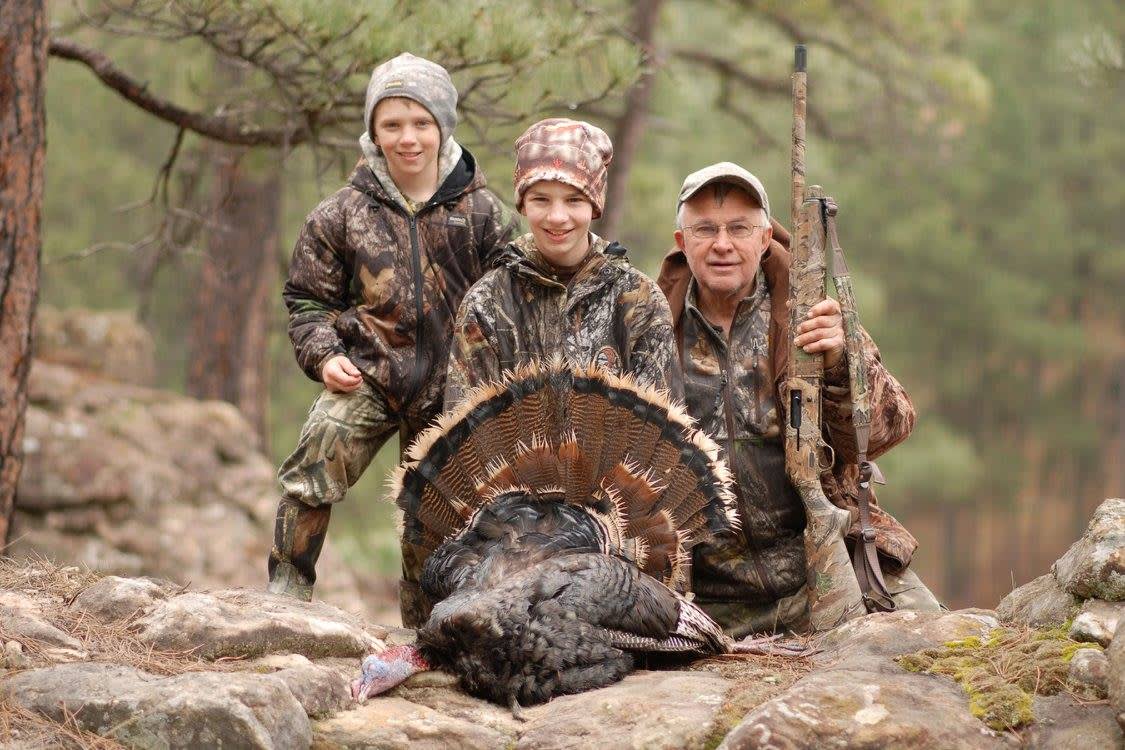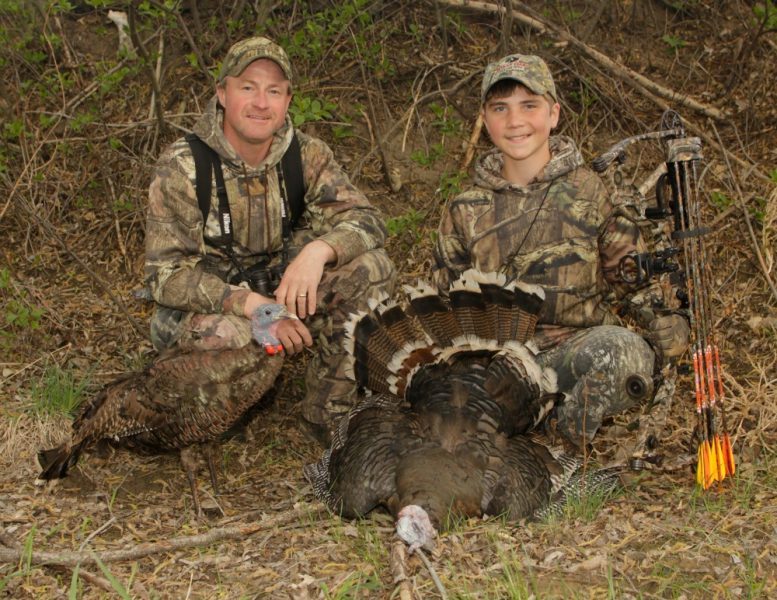Partner Up for Wild Turkey Success
Mark Kayser 04.06.17

Think twice before you decide to go it alone in the turkey woods this spring. Unlike a backcountry elk hunt, where you may require help packing out quarters of meat, during a turkey hunt you might need help in getting a gobbler to step out in front of you. A partner oftentimes is the answer.
Face reality. Turkeys have grown progressively more paranoid over the decades, and they decidedly grow more paranoid as every day of the season passes. Partner strategies can turn a gobbler bust into feathered success.
Strategy number one focuses on a sit-tight philosophy. If you know the area and have scouted the daily pattern of birds, you’re in the driver’s seat. Locate a vocal gobbler and determine his position in relation to where you believe he’ll move next on his daily schedule. Your next move is to circumnavigate the gobbler and arrive at the location he wants to be at later.
Study the terrain and look for an opening that the gobbler could walk through – that’s where the shooter sets up. The caller drops back 50 to 70 yards behind the shooter in a screened position. Having the caller hidden is crucial because your goal is to have the gobbler hunt for the maker of the calls. As the gobbler searches the brush for the hen, he should wander right into the lap of the shooter waiting with a load of Hornady Heavy Magnum Turkey to beak-slap the bird. Old farm roads and trails are perfect sites for such an ambush.

Strategy number two tackles a gobbler that won’t budge. After 10 minutes or so of calling with no perceived change in the location of the gobbler, it’s time to make the bird think the hen is leaving. Again, locate a small opening for the shooter to cover and have the caller slowly walk away in a straight line with an emphasis on throwing the sound away from gobbler.
Time the retreat to sound like a hen just pecking its way in the opposite direction. Turkeys have pinpoint hearing, so the gobbler will instantly know the hen is leaving and might wander right into the shotgun barrel of the shooter. Boom! It’s dinner time.
Strategy number three is the most aggressive; charge forward. The gamble here is whether you’ll bump the bird. The caller and the shooter need to work in tandem. The shooter walks 20 yards or so ahead and sets up. The caller then yelps a series of pleas in the direction of the tom. If the bird doesn’t budge, hopscotch ahead once again and set up. Your goal is to make the gobbler believe the hen is advancing and that could spur him to meet the hen halfway.
Having a partner along helps you with stubborn turkeys. It makes a gobbler think a hen is on the move and he had better get moving before lady love walks right out of his life.

